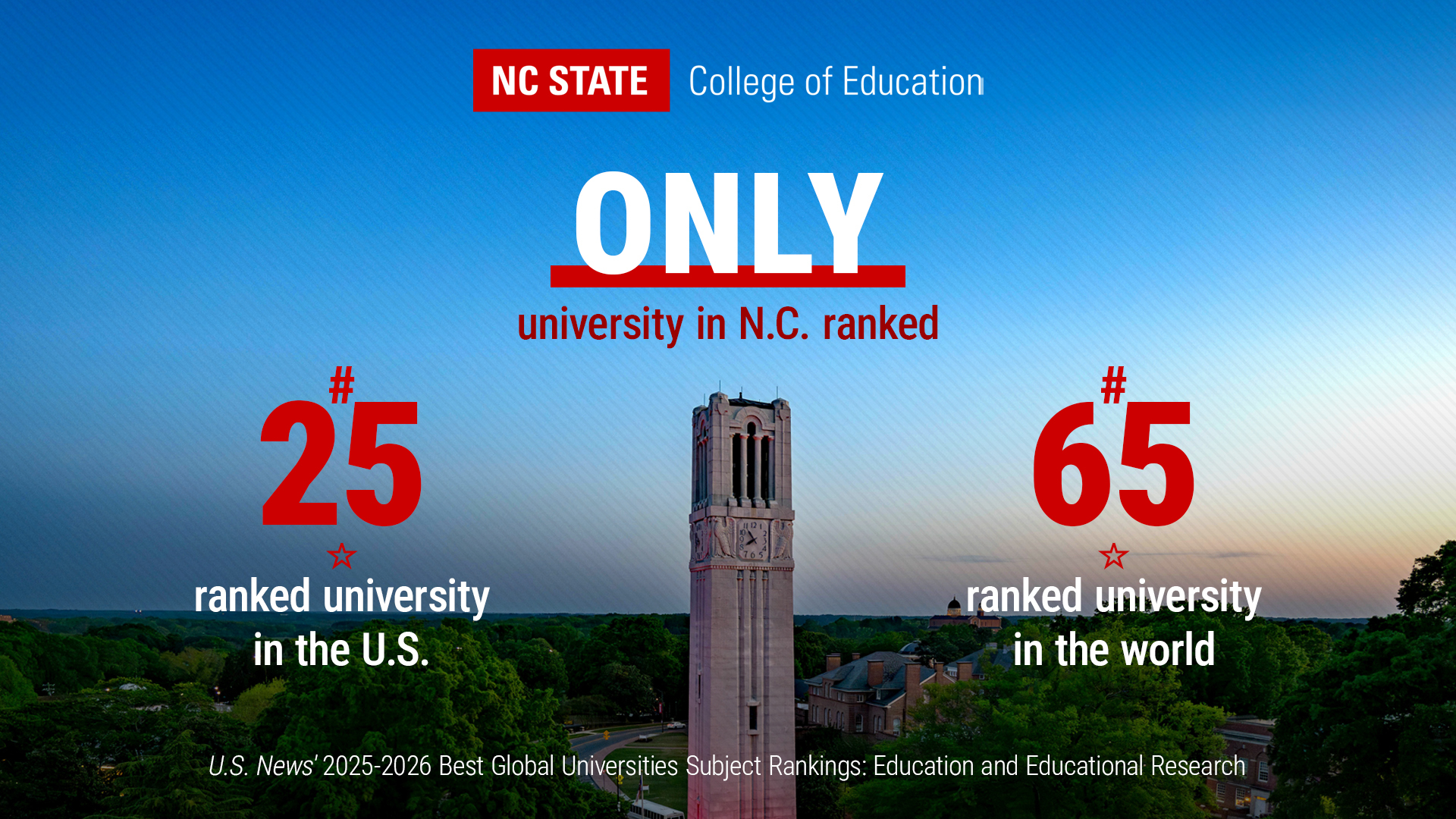Spotlight on Gayle Greene, Wake Tech Executive Vice President

With nearly three decades of higher education experience, Gayle Greene, who earned her doctorate of education in 1998, knows how strong leadership guides institutional success. The College of Education alumna serves as executive vice president of Wake Technical Community College, North Carolina’s largest community college, and one of the fastest-growing community colleges in the nation.
Greene’s success at Wake Tech recently earned her an Aspen Presidential Fellowship for Community College Excellence. She is part of the program’s inaugural class of 40 community college leaders from around the country.
We recently caught up with Greene to discuss her thoughts on her accomplishments, her tenure at Wake Tech and the importance of community colleges in higher education.
What does it mean to be named an Aspen Presidential Fellow? What do you hope to learn and accomplish during your time in the program?
This is a truly great privilege for me — the opportunity to study with the Aspen Institute and Stanford University and to learn from other community college leaders. We share a compelling interest in helping students improve their lives, and working together on the national level gives us the best chance of doing that.
The Aspen Fellowship is a ten-month program of innovative, residential seminars and expert mentoring. These initiatives are designed to help us think creatively and take bold action to ensure student access and success under increasingly challenging circumstances. I hope to learn from others’ successes and failures and gain new ideas to help Wake Tech better serve students. I am already benefiting from networking with other fellows from this inaugural class.
You’ve been at Wake Tech since 2002. What accomplishments are you most proud of during your time there, and what is your vision for the college’s future?
I am very proud of our Northern Wake Campus. It was very exciting to help bring that vision to life, to be there at its inception in 2007, and to provide leadership for its rapid expansion and enrollment growth. The campus now serves over 12,000 students.
It was also my pleasure to direct the college’s leadership program and promote better communication and collaboration across service areas and campuses — these are my passions. In my first year as executive vice president, I have observed internal operations and gathered feedback to try to make the college more efficient and effective. The result is another effort of which I am proud: the reorganization of our leadership team and our multi-campus structure. It is an attempt to unify service areas and to transform the college into a more nimble, adaptive organization that focuses on the future and is positioned to meet the needs of students and the community in an ever-changing landscape.
Why is support for community colleges important to North Carolina’s educational and economic future?
I believe community colleges change lives, and in doing so they change families and communities.
Each year, Wake Tech gives thousands of people opportunities to gain specialized skills, earn new credentials, start new career pathways and earn credits for university transfer. The college promotes job creation by providing relevant training and produces a highly qualified workforce that fuels the region’s economic engine. Companies want to locate here because they know they can find the workers they need to thrive.
The college partners with business and industry to open doorways to valuable internships, apprenticeships and employment for students. Wake Tech retrains unemployed and displaced workers and makes sure citizens have the knowledge and skills to compete successfully in a changing job market. Ninety percent of our graduates remain in the Wake County area to live and work.
In difficult economic times, people turn to Wake Tech in increasing numbers, and Wake Tech plans strategically to respond to those needs. The college is committed to using its resources in the most effective way, providing students with the latest technologies and highest-quality instruction, and staying abreast of trends and national initiatives. Wake Tech focuses on the future and is now engaged in strategic planning for the coming decade, preparing students and workers to meet the increasingly complex demands of tomorrow’s workplace.
You received your doctorate in higher education from the College of Education. How did your experience prepare you for a leadership role with one of the nation’s fastest-growing community colleges?
I credit the program with so much — ultimately, with helping me find my life’s work. As a graduate and employee of private liberal arts colleges, I didn’t know very much about community colleges. My classes at NC State exposed me to them, and as I came to understand the community college vision and mission, I knew that’s where I needed to be. The coursework I had in program evaluation, qualitative and quantitative research, and statistics was invaluable in preparing me to make data-driven decisions in my current role.
I have used that knowledge extensively in my work, as well as what I learned about institutional effectiveness, accreditation and the unique qualities of adult learners. I met many people who were college leaders and learned from the experiences and insights they shared. As part of my dissertation, I had the opportunity to interview 30 women leaders in higher education and to benefit from their collective wisdom. They were role models who helped me develop and fine-tune my own leadership style.

Learn more about our redesigned doctoral programs and how we shape exemplary scholar leaders.
- Categories:


